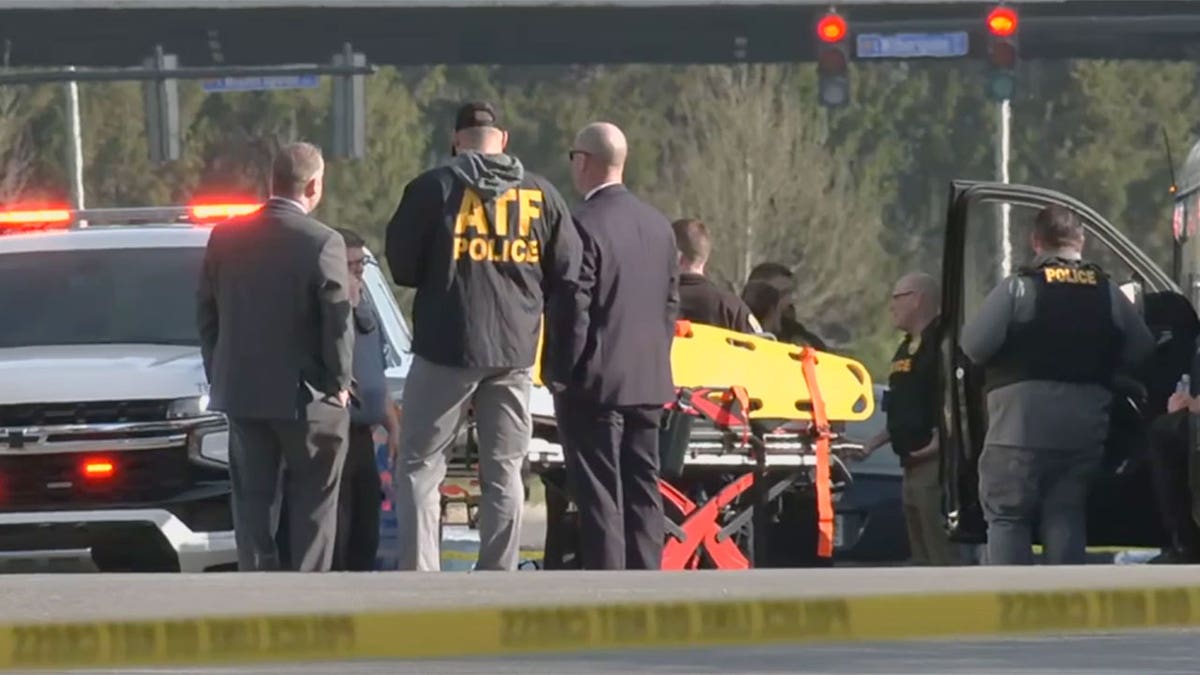This is a case of extreme government overreach by the ATF: Rep. Andrew Clyde
Rep. Andrew Clyde, R-Ga., discusses a federal judge blocking the Biden administration's regulations on pistols with stabilizing braces on 'The Ingraham Angle.'
FIRST ON FOX: A Second Amendment advocacy group filed a lawsuit against the Bureau of Alcohol, Tobacco, Firearms, and Explosives (ATF) over the agency’s "zero tolerance" policy to shut down gun stores.
Gun Owners of America (GOA) filed a suit against the ATF on Tuesday over the agency’s rigid inspection guidelines for federal firearms licensees (FFLs) from January 2022 that makes it easier to revoke a gun store's federal license.
"This zero tolerance policy towards lawful commerce guaranteed by the Second Amendment is just the latest example of this Administration weaponizing federal agencies against their political enemies," GOA senior vice president Erich Pratt told Fox News Digital.
INTERNAL ATF DOCS SHOW ‘ZERO TOLERANCE’ GUIDELINES FOR SHUTTING DOWN GUN STORES

Gunowners of America (GOA) filed a suit against the Bureau of Alcohol, Tobacco, Firearms, and Explosives (ATF) on Tuesday over the agency’s "zero tolerance" guidelines for federal firearms licensee (FFL) inspection guidance from January 2022 that makes it easier to revoke gun stores’ federal licenses. (WDRB)
"It also is just one more compelling piece of evidence to support gun owners’ demands that Congress defund the ATF," Pratt added.
Gun Owners Foundation (GOF) board member Sam Paredes told Fox News Digital it’s "ridiculous that good people trying to make an honest living are facing this assault on their livelihoods simply over inconsequential paperwork errors."
"GOF is proud to be lending our support in defense of Bridge City Ordnance and all of those small businesses facing devastating consequences if this Administration’s hostility towards firearms is permitted to go unchecked," Paredes said.
On Tuesday, the GOA filed the lawsuit Morehouse Enterprises v. ATF (II), following the first lawsuit filed by North Dakota gun store Morehouse Enterprises and backed by the Second Amendment advocacy group over the Biden administration’s frame and receiver rule, also known as the ghost gun rule.
The new lawsuit pushes back on the ATF’s targeting of Morehouse for FFL license revocation under the agency’s "zero tolerance" policy.
The ATF visited Morehouse after their initial lawsuit and found five violations out of 5,000 gun acquisitions or sales, and had never visited the gun store before the initial lawsuit.
The agency is now trying to suspend Morehouse’s gun store license.

Gun Owners Foundation board member Sam Paredes told Fox News Digital it’s "ridiculous that good people trying to make an honest living are facing this assault on their livelihoods simply over inconsequential paperwork errors." (AP Photo/Andrew Selsky)
A spokesperson for the ATF said the agency is not able to comment on ongoing litigation.
Internal documents from the Bureau of Alcohol, Tobacco, Firearms, and Explosives (ATF) show the "zero tolerance" guidelines the agency is using to shut down gun stores.
Fox News Digital exclusively obtained the ATF’s FFL inspection guidance from January 2022 that makes it easier to revoke gun stores’ federal licenses.
The guidance says the agency "has zero tolerance for willful violations that greatly affect public safety and ATF’s ability to trace firearms recovered in violent crimes" and that "revocation" of the FFL’s license "is the assumed action" with violations.
"Therefore, revocation is the assumed action, unless extraordinary circumstances exist, when violations are cited that include" transferring a firearm "to a prohibited person knowing or having reasonable cause to believe the transferee is a prohibited person," failing to perform a background check, and "making a false or fictitious written statement in the FFL’s required records or in applying for a firearms license," the guidance reads.
The guidance defines administrative action "as a warning letter, warning conference, revocation, imposition of civil fine, and/or suspension of a federal firearms license, including a recommendation of denial of an original or renewal application, and alternate action to revocation."
According to the documents, the "ATF must establish willfulness to proceed with revocation" under federal law, but the agency "does not have to establish a history of prior violations to determine willfulness."

Fox News Digital exclusively obtained the ATF’s FFL inspection guidance from January 2022 that makes it easier to revoke gun stores’ federal licenses. (Michael Ruiz/Fox News Digital)
"Accordingly, ATF will revoke a federal firearms license, absent extraordinary circumstances on initial violations, if those violations inherently demonstrate willfulness, such as transferring a firearm to a prohibited person; failing to run a background check prior to transferring a firearm to a non-licensee; falsifying records, or making false statements; failing to respond to an ATF tracing request; refusing to permit ATF to conduct an inspection; or allowing a straw sale of a firearm to occur."
The guidance says that the agency "can establish the knowledge element of willfulness in several ways" including establishing "the FFL has a history of similar, repeat violations, and documentation that an [Industry Operations Investigator (IOI)] discussed them with the FFL."
ATF did not immediately respond to Fox News Digital's request for comment.
"The FFL’s compliance history can include other efforts by ATF (including qualification inspections) to inform the FFL about its legal responsibilities," the ATF guidance reads, also saying the agency can "use inspection reports to establish willfulness even if the inspection found no violations."
CLICK HERE TO GET THE FOX NEWS APP
"Revocation is also an appropriate licensing action in response to the discovery of the below willful violations," the guidance also says, which includes any "other [Gun Control Act] violation not specifically addressed in this order where revocation may be appropriate."
Additionally, when an FFL loses its license, it will likely close shop and be required to send its gun purchase records — which are now required to be kept indefinitely — straight to the ATF.














































